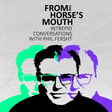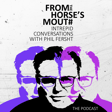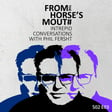
Episode 5: Ripple Effects - Gary A. Bolles, Chair for the Future of Work for Singularity University
In this episode, Phil Fersht engages in a thought-provoking discussion with Gary A. Bolles, a futurist, author, and thought leader specializing in the future of work and workforce transformation. Gary is the Chair for the Future of Work at Singularity University and co-founder of eParachute, a platform designed to help individuals navigate career transitions in our rapidly changing job landscape.
They explore the profound impact of exponential technologies, particularly artificial intelligence (AI), on the future of work and human experience. Gary emphasizes the importance of viewing AI as a powerful toolset rather than a co-pilot or co-worker, highlighting the necessity for a mindset shift, skill development, and effective utilization of new tools. He introduces the idea of "unlearning" outdated practices and encouraging opportunities for employees to embrace new ways of solving problems.
They discuss the importance of self-knowledge, setting personal learning goals, and making learning a team sport to enhance motivation and engagement. The discussion ultimately highlights that by cultivating the right mindset, skill set, and tool set, we can navigate the future of work with confidence and purpose.












